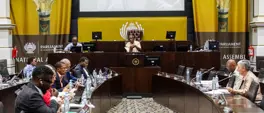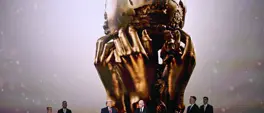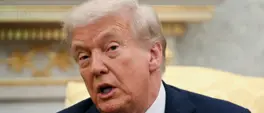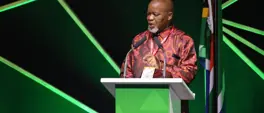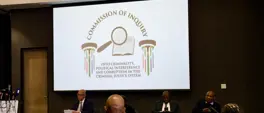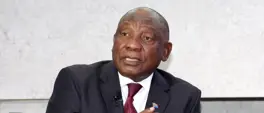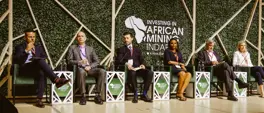World Radio Day: 101 years young, and still going strong!
Tasleem Gierdien
13 February 2024 | 5:15It’s World Radio Day! Learn more about the medium and why it’s still loved and celebrated in every country.
Today (13 February) is World Radio Day!
We've come so far...
It's generally believed the first radio transmission was made by Guglielmo Marconi in 1895. Radio broadcasts of music and conversation, aimed at mass audiences, came into existence, albeit experimentally, sometime around 1905/1906.
Radio was commercialised in the early 1920s, paving the way for the existence of radio stations. By the 1950s, radio has become the standard way of getting information at home and in your car.
In 2011, Member States of UNESCO proclaimed this day World Radio Day, and it was adopted by the United Nations General Assembly in 2013 as an international event.
After celebrating 100 years of radio in 2023, the celebrations continue this year, aiming to shine a light on radio’s remarkable past, relevant present and promise of a dynamic future.
This brings us to 2024's theme: Radio - A century informing, entertaining and educating.
“The 2024 observance highlights the history of radio and its powerful impact on news, drama, music and sports. It also recognises the ongoing practical value as a portable public safety net during emergencies and power outages, caused by natural and human-made disasters, such as storms, earthquakes, floods, heat, wildfires, accidents and warfare. Furthermore, the continuing democratic value of radio is to serve as a grassroots catalyst for connectedness within underserved groups, including immigrant, religious, minority, and poverty-stricken populations.”
- United Nations
Why we celebrate radio...
According to the United Nations, the objective of World Radio Day is to raise greater awareness among the public and media regarding the importance of radio.
The day also aims to encourage radio stations to provide access to information through their medium and enhance networking and international cooperation among broadcasters.
Democratic value: radio is meant to serve as a grassroots catalyst for connectedness within underserved groups including immigrant, religious, minority and poverty-stricken populations; and as an instantaneous bellwether of public opinion expressed through the auspices of free speech in the public space.
World Radio Day is also an opportunity for radio stations to connect on-air with fellow broadcasters worldwide.
No, radio is not dead...
Industry giants say it's a remarkable achievement for a major mass communications medium to continue its relevancy for 101 years and still be a force for freedom of expression, joy and knowledge.
Of course, we welcome radio’s future as the industry works tirelessly to innovate and bring it into digital spaces for YOU!

